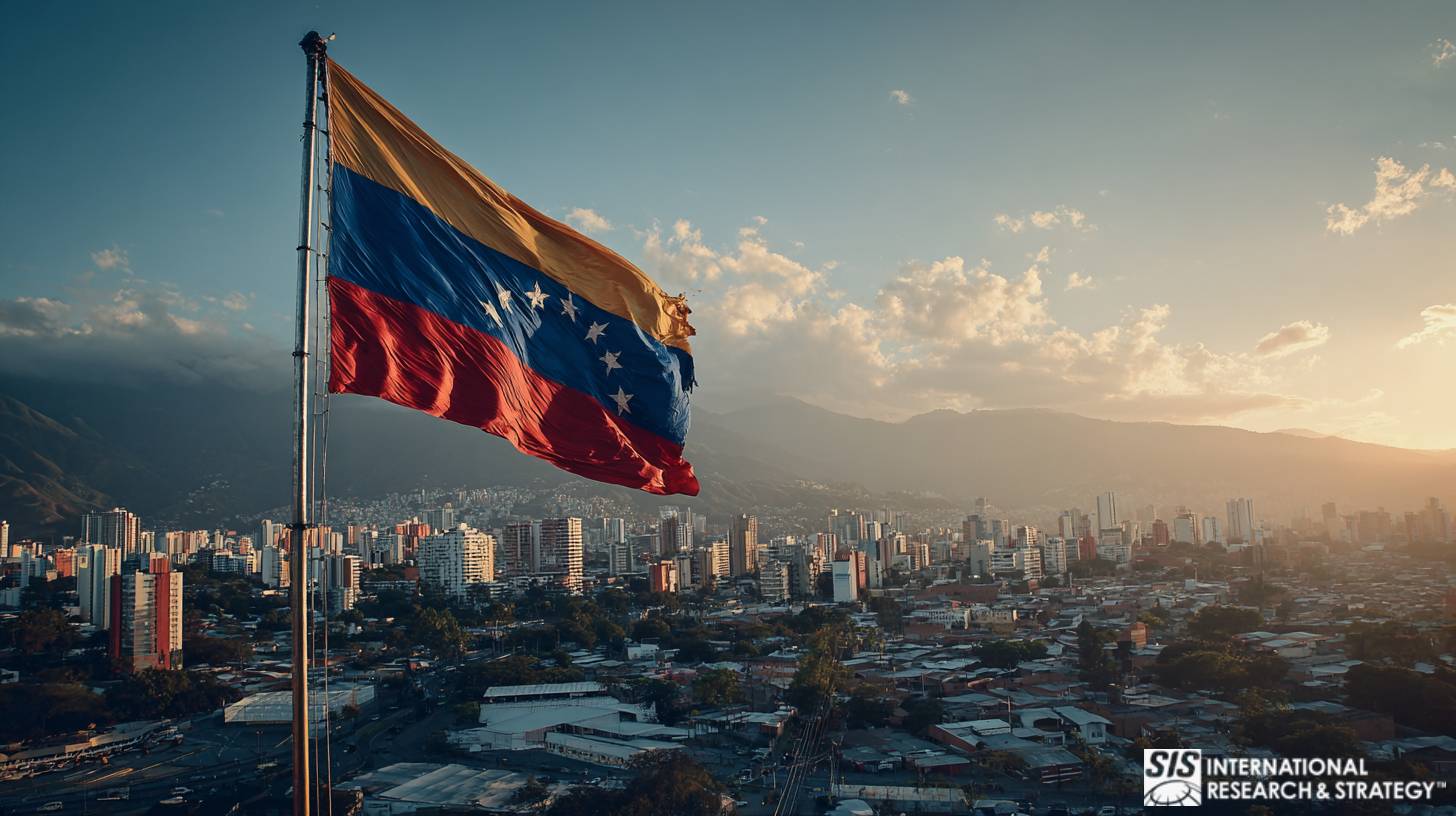ベネズエラの市場調査
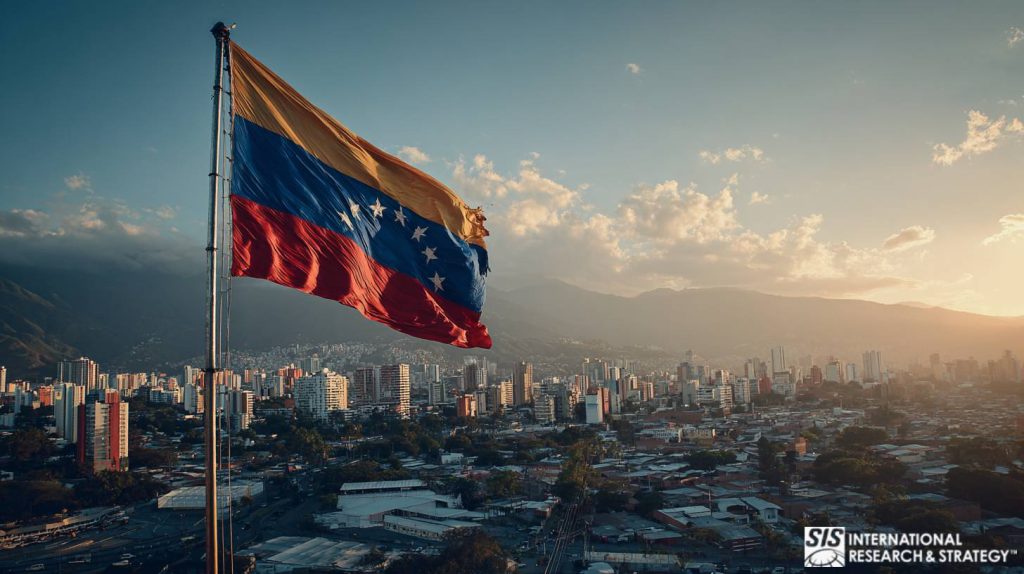
チャベス政権の余波
Since the death of charismatic United Socialist Party leader Hugo Chavez in 2013, Venezuela has struggled during the presidential tenure of his hand-picked successor, Nicolás Maduro. With a one-product economy based almost entirely on oil production, the financial fortunes and the quality of life for many in Venezuela have plummeted in direct relationship to world oil prices. Already in decline during Chavez’s waning years in office, under Maduro the decline has devolved into an outright collapse.
現在、政府は基本的な製品さえ輸入も供給もできない。人々は家庭用品、医薬品、食料を手に入れるために何時間も長い列に並んで待っている。状況が悪化するにつれ、抗議活動、略奪、暴力事件がますます頻繁に発生している。マドゥロ大統領は物資不足は買いだめと密輸のせいだとしているが、政府の管理不行き届きが原因だとする見方が大勢を占めている。国内産業も打撃を受けており、生産レベルは最低水準に落ち込んでいる。一方、ベネズエラの信用格付けはジャンク債レベルだ。
Price controls are in effect to protect consumers from runaway inflation and currency has been shockingly devalued. Exports are shutting down, and companies continue to leave the country or close down. Inflation has risen into triple-digit territory – the highest in the world – and salaries are far from keeping pace. Crime is on the upswing in Caracas and to a greater degree in the interior of the country.
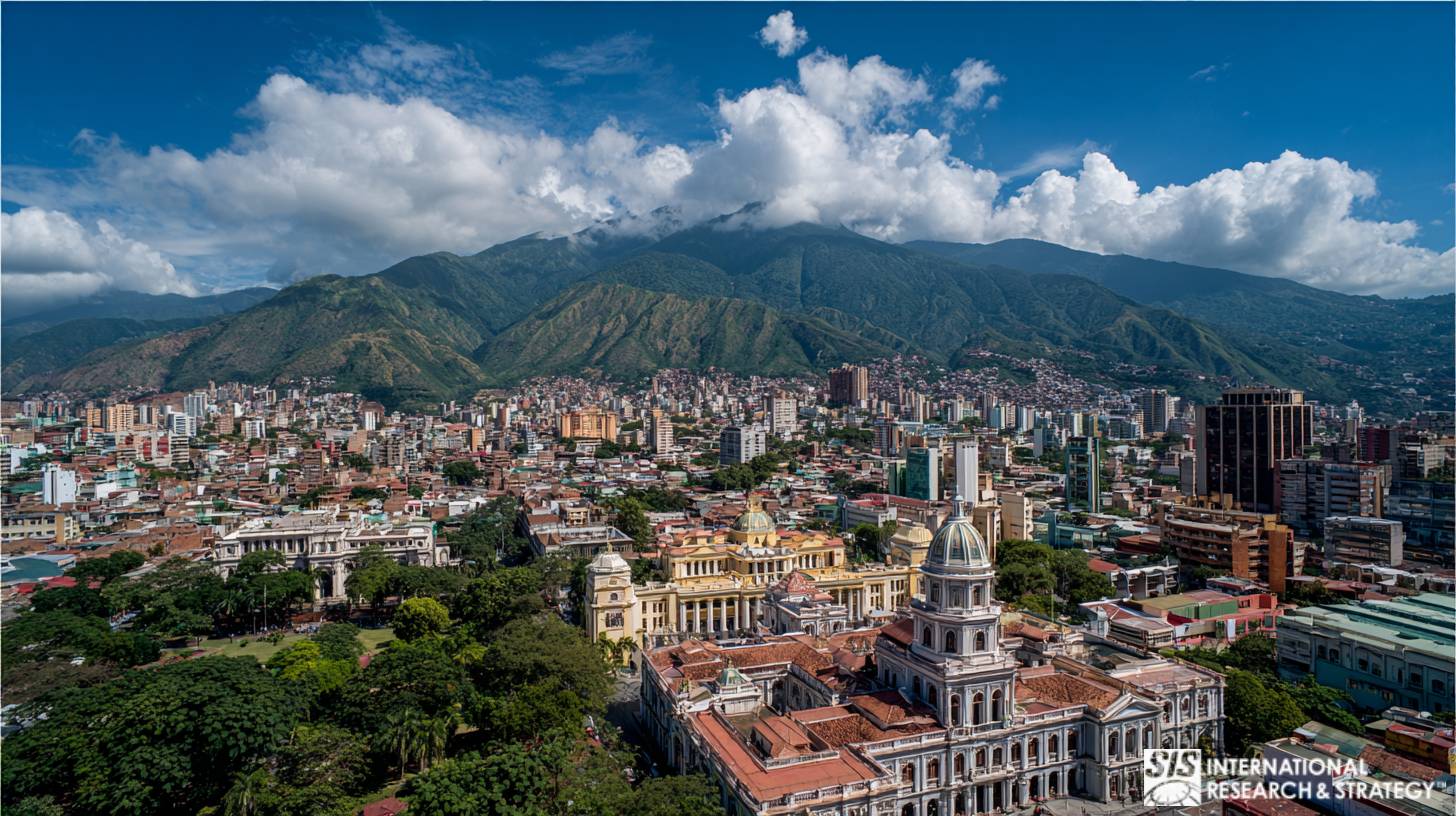
わずか 10 年前にベネズエラが近代史上最大級の商品ブームを経験し、石油からの総収益がクウェートと同程度の 5,000 億ドル近くに達したとは想像しがたい。しかし、その余波で経済運営の失敗と世界の石油価格の下落により、国は混乱状態に陥り、すぐに救済される見込みはほとんどない。社会不安が蔓延し、ベネズエラは限界点に達したという圧倒的な感覚が広がっている。政府はこれまでのところ混乱から身を守っているが、大変動が訪れる可能性は十分にある。マドゥロは最後のチャベス主義指導者となるのだろうか。時が経てばわかるだろう。その間、彼はより権威主義的で強硬な姿勢を取っている。
「国民の不安がさらに深刻化するのを恐れて、政府は現在、半分空っぽの店で不満を抱く買い物客の列を制御するために軍隊を派遣している。また、政府は配給制度を導入し、政府が管理する店での買い物客の入場を週2日に制限している。 ブルームバーグ cynically put it, “Venezuela reduces lines by trimming shoppers, not shortages.”.1
本質的に、現在進行中のベネズエラの惨事は、 ない グローバル資本主義の時代に経済を管理するには、これは間違いなく失敗した経済モデルです。現在、ドルは取引所よりも闇市場で100倍も価値があります。ベネズエラが債務不履行に陥る可能性は十分にあります。原油が1バレルあたり$50未満であるため、国は常に損失を出しています。毎月$2Bの準備金を失っていると推定されています。
原油価格の上昇はベネズエラの問題を解決するだろうか?
World oil prices historically fluctuate. While they are presently at rock bottom, most industry prognosticators feel that prices will inevitably rise once again. Unfortunately for big oil-producing nations such as Venezuela, just when this might occur is uncertain. Certainly, a normalizing of oil prices would help to keep Venezuela solvent and operative. At $70-$80-a-barrel, it could sustain itself and feed its people. Concurrently, if the people do better, the Chavista government stands a far better chance of enduring.
最近報告されたように ボイス・オブ・アメリカ「ベネズエラは石油輸出国機構(OPEC)加盟国の中で、原油価格の下落によって最も深刻な打撃を受けている国の一つだ。価格維持のためにOPECに供給削減を求めるベネズエラだが、市場シェアの維持に注力するサウジアラビアと湾岸OPEC同盟国の姿勢を変えることはできなかった。」2 サウジアラビア、OPEC、ロシア、その他の石油資源国が生産抑制を約束していないため、ベネズエラの当面の財政見通しは暗い。
Of course, other problems existed before the bottom fell out of the oil market. Even if and when oil prices rise, Venezuela will have to deal with its broken system, price controls, gas subsidies, rationing, and inadequate food supplies. Paying off creditors won’t help a hungry populace. An influx of cash also won’t restore political freedoms. Chávez and Maduro dealt with a lot of problems by throwing money at them. With the money gone, that’s no longer possible. At best, a new infusion of oil money might help them to kick the can down the road a bit further, but it’s no magic bullet.
ベネズエラ:民主主義か否か?
Despite all of the accusations leveled against it, the Chavista government of Venezuela built its legitimacy on fair electoral processes and relatively clean elections. Today, however, the playing field is uneven. The government controls all of the institutions and the people are unable to express their choices freely. によると デイリービースト「ベネズエラの国会は ニコラス・マドゥロ大統領2013年の就任以来、2度目となる大統領令による統治の(最近の要請)を承認した。この決定により、大統領は行政権以外の特別かつ拡大された権限を与えられる。マドゥロ大統領はこれを帝国主義と戦うための推進力と呼んだ。
残っているのは 管理された 民主主義ではない。マドゥロの野党はそれを独裁政治と呼ぶかもしれない。政府はメディアの大部分を支配しており、彼らはそれを利用して票を集めることができる。政府職員は政府支持の抗議活動に参加するよう求められている。人権団体の不満にもかかわらず、野党候補者は選挙に出馬することさえ禁じられている。マドゥロは、ウゴ・チャベスが持っていて大いに有利に働いたカリスマ性を明らかに欠いているため、さらに苦境に立たされている。チャベス支持者にとっての唯一の救いは、野党が団結して内部抗争の傾向を克服できないことだ。団結できないため、彼らは次の議会選挙で敗北する可能性がある。
ベネズエラの民主的制度の評価
Venezuela has a long history of crony interests exploiting situations for their own gain. Even Chavez was seen as channeling the hatred of older political factions to obtain power. The Venezuelan constitution has been rewritten numerous times for political expediency. The State Assembly was often used as a rubber stamp to enforce Chávez’s power. 脅迫的な戦術は、マドゥロ政権に対する暴動や暴力を扇動したという捏造された容疑で現在投獄されているレオポルド・ロペスのような野党指導者を黙らせるために頻繁に使用されてきたし、今も使用されている。
大規模な汚職が明らかで、軍も共謀しているようだ。長年陸軍将校を務めたディオスタド・カベロはマドゥロと非常に近い関係にあるため、多くの人が彼が密かに「実権を握っている」と感じている。カベロは現在、麻薬カルテルへの関与と米国へのコカイン密輸の疑いで捜査を受けている。多くの国で一般的に見られる権力分立とは異なり、ベネズエラでは誰もが行政部門の命令に従って行動している。
Is Chavez Still A Hero to The Poor?
Though it has been some time now since the passing of Hugo Chavez, his legacy and legend still live in Venezuela. This is especially true among the nation’s poor and among Chavista leaders. “Since Chavez’s death after a battle with an undisclosed cancer in 2013, the government and the PSUV party have made great efforts to present him as a national hero and capitalize his legacy. President Nicolás Maduro mentions Chávez in almost every speech, urging people to follow his example.”4 It’s true that no one has benefitted quite as much from attaching himself to Chavez’s enduring popularity as Maduro. Since his Chavez-endorsed election, there have been chronic shortages, sporadic violence, inflation, and accusations of impropriety on many levels, but past association with Chavez allowed Maduro to cling to
power. However, when people can’t eat and have no money, their patience can begin to erode. Even Maduro is playing the “Chavez card” less and less, as it is a currency that no longer guarantees reverence or votes at election time. Many feel the true revolution died along with Chavez. Perhaps not even another compelling charismatic could revive it. From colorful murals on building exteriors to stories that still circulate among the faithful, Chavez image and his savior-status among the poor still survives, due to his personal magnetism, the work he did for the disadvantaged, and the way he stood up to and defied the establishment. The Oligopoly that he railed against did in fact exist, . It was a system that deeply entrenched the powers of a small group of the privileged elite. Today, Maduro can still blame Venezuela’s problems on these entitled few. It is this class-driven cleavage that makes governing extremely difficult. In truth, unless oil prices rebound and reverses the country’s economic fortunes, these lingering echoes of Chavista glory may fade forever.
ボリバル革命の意義
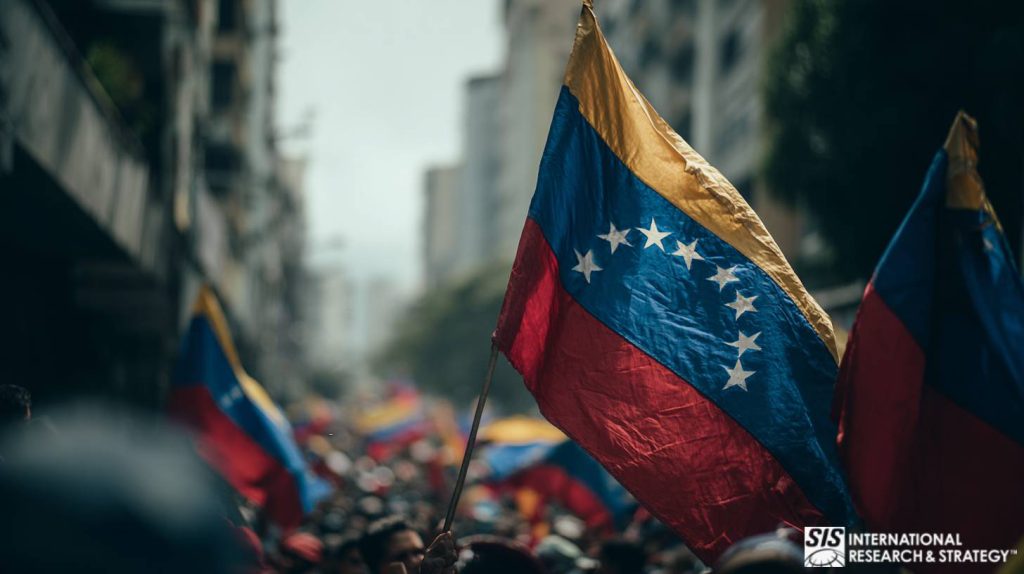
ボリバル革命は20年に富の大幅な再分配をもたらした。th21 世紀に南米で起こった石油ブームは、ベネズエラの過去 16 年間の完全な変貌につながりました。石油ブームのおかげで、ウゴ・チャベスは多額の資金を惜しみなく社会福祉プログラムに投入することができました。今日、これらのプログラムのほとんどは失敗しています。それにもかかわらず、貧困層は右派の支配下では状況がさらに悪化するだろうと感じ、チャベス政権を支持し続けています。多くの人々は、物価をさらに引き上げると思われる反対派を支持するよりも、長い行列と安い商品に耐えることを選びます。
“Prior to its current domestic woes, Venezuela worked hard and often succeeded in establishing itself as a major alternative influence in Latin America, as a kind of “Bolivarian” power. Now, Venezuela must confront the fact that the conditions once anchoring its global aspirations – like excessive revenues generated by the petrostate – have evaporated. Venezuela’s capabilities for international power projection are constrained by domestic unrest, 国際準備金の枯渇, 急激なインフレ、原油価格の低下、そして 石油生産の低迷国際的なボリバル計画を延長する見通しはますます暗くなっている。」12
本質的に、チャベスはベネズエラ人の精神を独力で変えた。彼は貧しい人々に力を与え、彼らを政治プロセスに導いた。マドゥロは不人気かもしれないが、革命の鼓動は多くのベネズエラ人の心の中でまだ鼓動している。彼らはより良い時代を忘れていない。野党指導者はチャベス支持者の支持を得ようとポピュリスト的な約束をするが、国民の不信感は強い。革命の根源は経済格差をなくすことにあったが、腐敗がその意図を抑圧した。国際投資家にとって、チャベスに対する根強い感情は脅威とみなされている。他の人々にとって、それはいかに疎外されても生き続ける希望の夢である。
公民権、人権、そして貧困層の生活条件…
In Venezuela today, there is growing discontent and repression. There are long lines with hundreds of people waiting for subsidized food and supplies. Among the ranks of the waiting there is hatred, aggression and fear. The people, while not starving, are surely struggling and crime is escalating to the point where the people no longer feel safe. The police who might protect the citizenry are corrupt. It is estimated that of all the homicides committed in Venezuela (and it has one of the highest murder rates in the world) only 3% of perpetrators are ever prosecuted. The country’s prisons are among the world’s worst according to the U.N. At the root of this crime-wave is social inequality and the great and widening gulf between the haves and the have-nots that dates back over 100 years.
ウゴ・チャベスの社会主義はこの不平等に対処しようとしたが、結局は失敗に終わった。マドゥロ政権は以前のポピュリスト政策を維持する能力を失ったようだ。その結果生じた絶望は、犯罪、密輸、闇取引の急増、そして究極的には無益なために人々の労働意欲の低下という形で現れている。 Those who managed to escape poverty during Chavez’ glory years now find themselves slipping back into it. Segregation is evident and the pall of depression is palpable in the air. In addition, Venezuela is suffering from acute 頭脳流出あるいは、医師、エンジニア、弁護士、その他の専門家が、より不安定でないビジネス拠点を求めて国を離れる大移動です。
公職を目指す人々や彼らに賛成または反対票を投じる人々は、ベネズエラが政治にとってますます敵対的な場所になっていることに気づき始めている。ヒューマン・ライツ・ウォッチのアメリカ大陸担当ディレクター、ホセ・ミゲル・ビバンコ氏は、「ベネズエラ政府は司法制度を表向きに利用しているが、現実はベネズエラの裁判官や検察官が従順な兵士になっていることだ。ベネズエラ当局は権力を乱用して表現の自由を制限し、12月に予定されている議会選挙で特に重要な、オープンで民主的な議論を損なっている」と語る。5
Various political leaders have been jailed, driven from the country, or sued. Of course, jailing political prisoners on trumped-up charges is a classic totalitarian approach. Intimidation is also an effective method of repression, and it’s often done in such a way that the government can wash its hands of any implications of wrongdoing. Chavista thugs and motorcycle gangs have been known to terrorize journalists under the guise of being independent citizens. Even Twitter users on social media have been jailed for inflammatory comments concerning Maduro, instilling fear in not only journalists, but voters as well. Protests are met with harsh police crackdowns and the journalists who cover them routinely have their cameras confiscated or worse. It’s estimated that 70-80 press members are presently imprisoned in Venezuela. Even the mayor of Caracas is under house arrest.
新興のリーダーと定着した政治家
おそらくベネズエラにおける野党指導者の逮捕ほど注目を集めた政治的逮捕はないだろう。 レオポルド・ロペス。 ニューヨーク・タイムズ 「ハーバード大学卒でカラカスを構成する自治体の元市長であるロペス氏に対する告訴は悪質だ。マドゥロ氏は2014年2月に同氏の逮捕を命じ、政府に対するデモが広がる中、暴力を煽ったとして告訴した。政府は、刑事告訴の中で、ロペス氏がサブリミナルメッセージを通じてベネズエラ国民を暴力に駆り立てたと不合理な主張をした。」6 現在、ロペス氏は監禁されている建物の中で唯一の囚人であり、独房と自由の間には6つの鍵のかかったドアがある。もちろん、マドゥロ氏が彼を脅威とみなさなければ、彼は投獄されないだろう。
Overall, many feel there is a dearth of leadership in Venezuela. On the Chavista side, Chavez was able to nurture a cult of personality, but wherever this occurs, a charismatic tends to be surrounded by mediocrity. Case in point, ニコラス・マドゥロ。チャベスのような個性がなく、国民からの人気も前任者ほどではない。破綻した経済モデルを持つ国家という毒杯を引き継いだのだ。インフレが100%に近づき、ギャングに利用され、凶悪な食料配達と化したIDプログラムの下で、人々がわずかな配給を求めて何時間も列に並んでいる場所を管理することを想像してみてほしい。
ディオスダド・カベロ国会議長、 彼は狡猾で冷酷な執行者だが、国民の支持はない。軍事政権や軍事政権の指導者として当然の人物だろう。 カベロは野党のより過激な分子を刺激し、動機付け、忠誠心を引き出すが、彼の過激な自由主義経済政策と特権的な経歴のせいで、チャベス主義支持者には受け入れられない。
野党大統領候補、 エンリケ・カプリレス, is a major player with good support, but he may be seen among voters as a has-been. He has had chances in the past as an opposition leader to create change, so it is hard to imagine him creating much of a buzz. Chavista defector and Lara state Governor アンリ・ファルコン 彼は中道派であり、中道の立場を貫くことに長けている。目立たないようにしており、注目すべきダークホースと考えられている。
Fox News.comによると、「ベネズエラの選挙管理当局は著名な野党指導者を拒否した マリア・コリーナ・マチャドマチャド氏は、来たる議会選挙の候補者登録の試みを却下した。マチャド氏は月曜日(2015年9月28日)、全国選挙管理委員会が12月6日の選挙への立候補登録の試みを却下したと発表した。マチャド氏は、立候補の却下は彼女の権利の甚だしい侵害だと訴えている。7
今後の選挙:予測と起こりうる結果
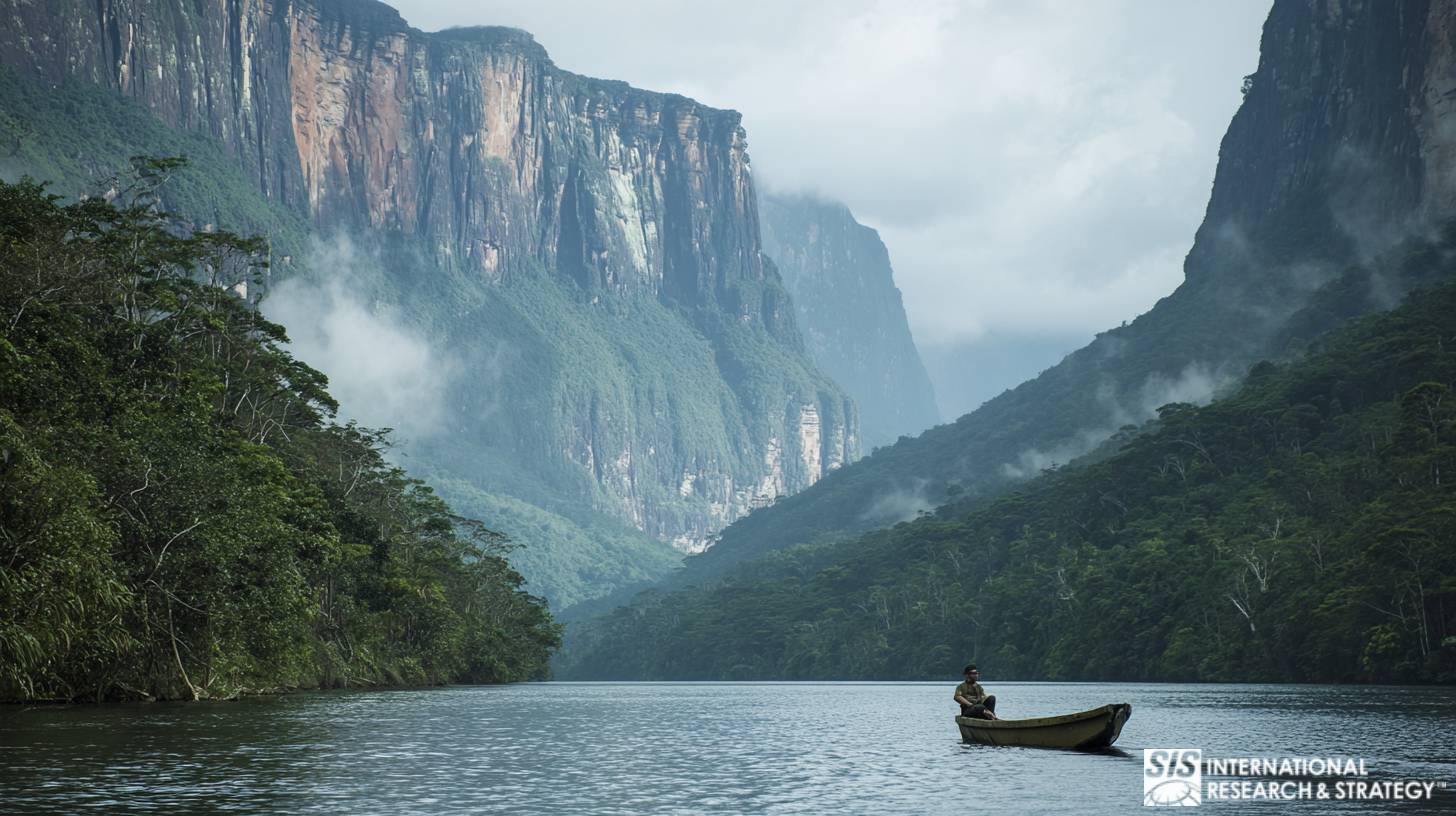
2015 年 12 月に行われるベネズエラの議会選挙は、民主主義志向の人々が投票箱を通じて自分たちの願いを表明し、国を良くするための最後の希望であると一部の人々から見られています。その後は未知の領域です。ほとんどの人は野党が好成績を収めると考えていますが、これは長年チャベス派が選挙で優勢だった後の大きなニュースです。しかし、野党は特に団結していないため、煙が晴れたときには単一の指導者がいない可能性があります。マドゥロ大統領の統治能力は、選挙がどのように展開するかにかかっています。国会議長のディオスダド・カベロは、野党が集めるあらゆる勢いを利用しようとします。 野党が圧勝すると予想する声もあるが、政府が 許可する そのようなことが起こるはずはありません。先ほども述べたように、 野党の人物 レオポルド・ロペスとマリア・コリーナ・マチャドは投獄され、 選挙への参加を禁じられる。
Another government advantage is near outright ownership of the media airwaves. The opposition candidates, once they declare, are immediately intimidated by the government and not allowed to have adequate airtime. For the most part they are denigrated, criticized, and are said to be fomenting violence and unrest. Of course, if the Chavistas lose, they won’t control all of the government anymore. In that event, they may attempt to enact laws that limit congressional power. Regardless of the outcome, “According to a leading Venezuelan polling organization, Datanálisis, 84 percent of the population believes that the country is on the wrong path and only 13 percent view Venezuela’s situation positively.”8
報道の自由?情報の質?
以来 Nicolás Maduro assumed power in Venezuela, journalistic opinion and information are allowed much less space in available publications. Local news outlets have been bought out by government supporters or have been driven out of business altogether, their resources often drained by ongoing court cases. In many instances they are refused permission to advertise or broadcast. Even worse, journalists are often jailed or fined by a wary government intent on neutralizing negative reports on its conduct and policies. Freedom of the press is not altogether forbidden as it is in North Korea, but those who do publish anti-government content are almost sure to not be publishing much longer.
報道の自由を抑圧するために政府が導入した措置を回避するため、多くのジャーナリストがインターネットを利用し、ブログや外国メディアでの出版を行っている。しかし、マドゥロ政権はソーシャルメディアでの表現に対して行動を起こし始めており、政府に否定的な印象を与えるツイートをした6人を投獄している。自由な意見を公表することの危険と障害にもかかわらず、独立性と抵抗は依然として報道機関の大部分に存在している。厳しい経済状況により、多くのジャーナリストが国外特派員を残して国外へ出ている。
The government is unable to crack down on foreign journalists because of the repercussions it would have internationally. No new reporters are coming in, but those already there have been allowed to stay. Ultimately, the government aims to negate local press outlets and mute the foreign journalists with a war of attrition. Social media is a helpful alternative to traditional delivery mediums, but money, resources, and talent are necessary for the production of substantial, informative reporting.
ベネズエラからの脱出 ― ナショナリズムの代償
“In 2007, the Bolivarian government issued a law-decree nationalizing all remaining oil production sites under foreign control and mandating that all oil extraction in Venezuela be undertaken within the framework of joint ventures, in which the state oil company PDVSA retains the majority stake. This move sparked a wave of lawsuits by foreign trans-nationals in international arbitration bodies demanding compensation for expropriated assets. In response, Venezuela withdrew from the ICSID in 2012, citing institutional bias in favor of transnational corporations on the part of the Washington-based body. “13
Where once Venezuela was home to many large multi-national firms, today only a handful remain. It’s difficult to make a profit because labor costs and the prices of goods are predetermined.
大手企業は、将来の景気回復を期待して持ちこたえているが、中小企業にはそれほど長く待つ余裕はない。大手石油会社は財政的に打撃を受けているが、将来の利益の可能性は無視できないほど大きい。
国際投資紛争解決センター(ICSID)には、ベネズエラ政府が国有化の過程で企業を没収したという主張を含む係争中の訴訟が多数ある。エクソンは最近、2014年に$1.6Bの訴訟で勝訴したが、同国は航空会社に何十億ドルもの未払い金を抱えていると言われている。全体として、ベネズエラは国際的な石油利権や大企業全般にとって商取引を行うのが難しい場所となっている。国を離れた人々は、より受け入れやすい新しい政府が発足するまで戻ってくる可能性は低い。
世界の石油経済におけるベネズエラの重要性
一時期、ウゴ・チャベスのベネズエラは、米国からのさらなる独立と自国の資源の管理を切望する世界中の国々にとっての灯台として輝いていた。 He was seen as that rare individual with the courage to stand up to the U.S. in defiance, and as a central figurehead in a worldwide alliance of left-leaning, socialistic powers. After world oil prices plummeted, the bottom fell out of Chavez’s plans and his mystique was weakened. その後、後継者のニコラス・マドゥロは激しい演説を行ったが、その影響力は控えめだった。 ペトロカリベ、 ベネズエラとカリブ諸国に石油を供給していたロシアは、資金の流れが止まると支持を失った。今日、世界の舞台でベネズエラを擁護する国はほとんど残っていない。
No doubt, Venezuela can still be a major provider of oil. They have the largest reserves in the world, but theirs is a viscous, hard-to-process type of petroleum product that is expensive to refine. With current prices at a nadir, Venezuela’s role as an oil producer has diminished, and its position as a lion of socialism has been undermined, as well. Globally, they are still a top ten producer of oil and they are important in that regard. Presently, there is a glut of oil on the global market, but this will not always be so. In the long-term, the world will need Venezuela’s vast reserves to supply an unquenchable need for petroleum.
UBSのストラテジスト、ジュリアス・ウォーカー氏は次のようにまとめた。「ベネズエラは依然として世界の石油市場にとって重要な国です。生産停止は大幅な価格高騰を招くでしょう。政情不安による生産停止はほぼ確実に価格急騰を招き、総生産不足は世界の石油市場に深刻な負担をかけるでしょう。」9
石油が唯一の答えか?
石油以外にも、ベネズエラは鉄鉱石、アルミニウム、金、ダイヤモンド、天然ガスなど豊富な天然資源に恵まれています。過去には多様化が試みられましたが、最終的には石油が20か国中を支配しています。th 21 世紀以降も石油は生産コストが低かったため、石油以外の生産手段の必要性は事実上議論の余地がなかった。それでも、石油には莫大な可能性がある。現在のベネズエラは、多様化の取り組みを妨げる資本と財産権の問題など、発展の障害となっている。
ベネズエラの財務大臣フリオ・ソサ・ロドリゲスはカラカスでの最近のインタビューで、この状況をうまく要約してこう語った。「私の世代にとって、石油が国家予算の半分以下に落ち込むのは初めてのことだ。過去20年間で最も愚かなことは、経済を多様化しなかったことだ。」10 ベネズエラの経済が安定すれば、ベネズエラの経済に投資して支援するには、かなりの外国投資が必要になるかもしれない。実現され、成果が上がるようになれば、多くの分野でチャンスが生まれるだろう。
Venezuela’s Relationship with Other Latin American Governments
The left-wing governments of Ecuador, Cuba, Argentina, and Bolivia have historically had alliances with Venezuela. These affiliations are based more upon ideology than on copying Venezuela as an economic model. Latin American ties were especially strong when Chavez ruled and money and oil were flowing. However, relationships have deteriorated noticeably under the Maduro regime.
Brazil pretends to have decent relations with Venezuela, but there is no real respect for Maduro that isn’t based on fear of his power and of losing access to Venezuela’s ready supply of oil. After all, Venezuela used to give money to their allies, but in light of its current economic woes, those days are gone. Some Caribbean nations such as Barbados rely on Venezuela for oil, so they are reticent to speak out against Maduro in any meaningful way.
While the embattled leader is struggling to hold together his frayed alliances, human rights groups are leaning hard on Latin American countries to hold the Venezuelan government accountable for its many transgressions against its political prisoners. Columbia has raised its voice to the issue, but it shares a border with Venezuela and isn’t too anxious to pick a fight. Cuba has long shared left-leaning proclivities with Venezuela, but their recent thawing of relations with the U.S. has placed Maduro in an awkward position given the vitriol and disdain he regularly aims at Washington and Obama.
ロシアと中国についてはどうでしょうか?
If Venezuela is a strong ally of Russia and China, the relationship is mostly superficial. Venezuela has offered the two world powers a place to sell their products on preferential terms. The loans they have given are typically based on contractual obligations for the selling of Russian and Chinese products. When times were better, sales were good and everyone was happy, but today the business is winding down. Russia claims continued alliance, but they have trouble dealing with of their own. It is China that has continued to lend to Venezuela, even when getting paid back for these loans seems unlikely.
エコノミスト誌によると、「ニコラス・マドゥーロ大統領は、9月1日に放映された週刊テレビ番組で、中国からの1兆4500億の新たな融資を発表した。2時間の番組(「マドゥーロとの接触」、「En contacto con Maduro」)で、大統領は契約が締結されたことを簡単に発表し、その後、中国兵が行進する映像と、中国高官らと太鼓を演奏する自身の映像を流した。…融資は石油で返済されるため、ベネズエラ議会の承認は必要なかった(正式には債務とはみなされないため)。」11
China’s place at the bargaining table is solid and they are not giving the money away for free. The strings are inevitably tied to the provision of a steady supply of oil in the future. Like Russia, China is dealing with its own economic turndown. Venezuela is located far away from China and the cost of refining the plentiful but viscous oil supply will be very expensive. The Chinese have made similar deals in Africa, leveraging present-day loans for long-term provisions of much-needed oil.
国際的な同盟国と敵国
ベネズエラと他の国々の同盟や友好関係は、ほとんどの場合、石油、金銭、左派政治に基づいていると認識されています。イラン、ロシア、シリア、中国にとって、いかなる関係も本質的には純粋に金銭的なものです。イデオロギーは主要な考慮事項ではありません。さらに、どの民主主義国家も、ほぼ確実にベネズエラ政府に反対しています。
キューバはベネズエラの長年の思想的同盟国である。しかし、米国との最近の関係改善はマドゥロ政権にとって問題を引き起こしている。ベネズエラとキューバは長年、米国の悪を非難し、協力してきた。キューバの180度転換はマドゥロを困惑させただけでなく、彼の正当性そのものに疑問を投げかけている。
Brazil’s friendship with Venezuela is of great importance to the Maduro government as Brazil is in good economic shape. Elsewhere, Algeria, Palestine, and the Assad regime in Syria have shown an alliance to the Venezuelan government. Some believe that Maduro’s regime has been somehow complicit in helping Iran to conceal its ongoing nuclear development program.
敵について言えば、アメリカがナンバーワンであることは疑いようがない。マドゥロ大統領は、アメリカが自分を暗殺しようとしていると執拗に主張し、その主張にはジョー・バイデン副大統領も関与しているとまで言っている。オバマ大統領は、ベネズエラにアメリカを帝国主義と決めつける理由を与えないよう最善を尽くし、マドゥロ政権との関係改善に努めてきた。他の面では、スペインはベネズエラとイデオロギー的に対立していると見られ、コロンビアは間違いなくマドゥロ大統領の怒りを買っている。
米国との新たな対話?
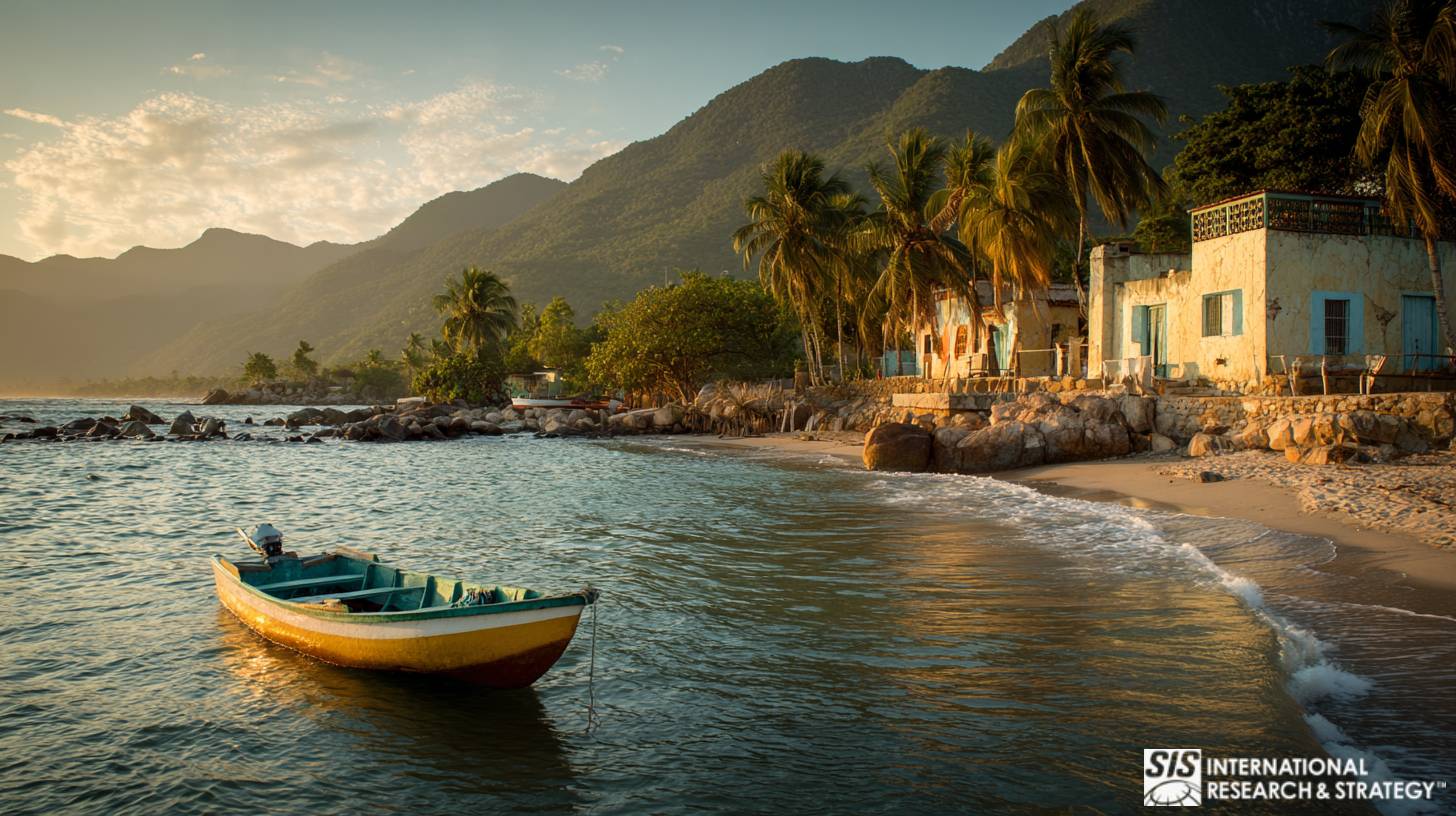
ニコラス・マドゥロにとって、米国政府との交渉は、せいぜいリスクの高い提案だ。結局のところ、彼と彼の前任者である故ウゴ・チャベスは、長年、彼らの忌み嫌う北の隣国を中傷し、反資本主義の毒舌を吐き続けてきた。そうは言っても、両国間の最近の協議は確かに継続中だ。ロイター通信が最近報じたように…
「米国と ベネズエラ 米政府高官によると、両国は険悪な関係の改善を目指し、ここ数年で最も広範な対話に乗り出した。その規模はこれまで報じられていない静かな外交は、共産主義国キューバとの米国の緊張緩和が、ラテンアメリカのもう一つの困難な関係の再構築に役立っている兆候だ。高官級会談を直接知るこの高官は、このプロセスはまだ初期段階だと警告した。ラテンアメリカで最も熱烈な反ワシントン政府で、米国の主要石油供給国であるこの国による関係改善の取り組みは、ニコラス・マドゥーロ大統領が、緊密な同盟国キューバとの米国との関係改善によって孤立を深めた衰退する国家主導の経済に苦戦している中で行われている。14
For the U.S, having a failed state in Venezuela is not a good thing. It creates increased security issues and opens the door to escalation in drug trafficking activities. The DEA has been investigating high-ranking Venezuelan officials for believed involvement in drug-related criminality. To mollify the U.S., some arrests have been made in relation to the investigations. One possible scenario sees the U.S. providing financial aid to Venezuela, though some doubt this will happen. In the pursuit of U.S. dollars, it’s reported that the Venezuelan Head of the Assemblage, Diosdado Cabello recently met in Haiti with U.S. Assistant Secretary of State Shannon. In the meantime, Maduro continues to vent on TV against the U.S., blaming it for most of Venezuela’s ills.
災害はすぐそこに迫っているのか?
Despite loans from China to keep it economically solvent and ongoing relations with the U.S. portending possible relief for Venezuelans, day-to-day life is still miserable for millions. Long lines of poor people stand in line for food and supplies. Constant shortages provide unending aggravation. Crime threatens the very lives of a vulnerable population. Many say that short of a quick and demonstrative intervention of some type, Venezuela may soon be heading off the cliff. This makes the coming elections even more important. With external debts mounting and oil prices remaining low month after month, conditions are perfect for a cataclysm of the highest order.
バークレイズによると、「ベネズエラは史上最悪の経済危機に陥っており、今年の生産量は9.1%減少すると予想されている。2014年から2016年の間に経済収縮率は16.5%に達するとみられ、その間のインフレ率は1,000%を超えるだろう。」15
The middle-class continues to protest, but unless they are joined by the poor, creating numbers too big to be ignored, little will change. True, petrol bombs, thrown stones, unrest, and violence can lead to an awareness that might affect real change, but without organization and leadership, such protests stand little chance of uniting huge amounts of people and of being effective. With Venezuelan citizens so hungry and angry, it’s not hard to see why Chavez-worship is on the wane. An epochal event might be necessary to usher in a new era for the nation and to reinvigorate its beleaguered markets.
長期的には…
Most experts agree that things will get worse in Venezuela before they get better. Even if oil prices rise, the best that might be expected is a few more years of “kicking the can down the road.” The country’s debts are astronomical. There isn’t enough food. Problems are myriad to the point that it may take decades for Venezuela to sift through the wreckage wrought by Chavez’s experiment, and by the fickle
化石燃料市場の本質。予想されるチャベス主義の没落がすぐに解決されるのか、それとも暗闇から抜け出すのに長く苦しい闘いが続くのかはまだ分からない。どのような解決法であれ、それは旧来の寡頭政治家の意志ではなく、国民の信任を必要とするものである。
Will a moderate such as Capriles provide the bridge to unite right and left in Venezuela? Can Chinese loans stave off default? China may well be tiring of waiting for its return on investment to pay dividends. On the upside, Venezuela is sitting on a sea of oil, and there is no doubt that eventually, the world will need it. Oil prices are bound to rise and when that happens, Venezuela will be well-positioned to reap the benefits. Investors, meanwhile, are in a wait-and-see mode.
LFPress.com より: 「経済は引き続き悪化するだろうし、政府には急速に高まるインフレと悪化する財政環境に対処するための強力な対策を講じる政治的意思がない。」 実際、現在広がっている国民の不満により、マドゥロ大統領が抗議活動の再燃につながるような痛みを伴う改革を実施する可能性はさらに低くなっている。つまり、今後、社会の不満はさらに高まることになるだろう」16
今後はどの道を進むべきか?
As improbable as it sounds, many feel the best course of action for Venezuela to take regarding its future would be to form a transitional government with representation from all sides, in the interest of national solidarity. This would include the opposition, the Chavista government, and the military. Some feel that painful austerity measures presented by a unified front are needed in order to stabilize the economy. The IMF could provide emergency funding. The people will decide who they want to lead through fair elections monitored by the international community. The ultimate goal would be to achieve some type of peaceful democratic transition.
提案されている他の解決策には、現在の為替レートを切り下げて、企業がベネズエラに戻るよう促すことも含まれる。石油業界と国際投資の観点からは、マドゥロとその政策に対する不信感が大きいため、野党の統制は改善となるだろう。現時点では、経済が衰退しているため、マドゥロ政権が関係を修復するのは困難だろう。そうは言っても、 失敗にも関わらず、多くの人々が依然としてチャベス主義を支持し、革命の復活に希望を抱いている。
Maduro still has four years left to rule, but it’s hard to imagine him surviving that long as badly as things have been. Should the urban poor mobilize and show their extreme discontent in the streets, Maduro’s tenure could be shortened. In an interesting article in the Huffington Post recently, this assessment was published …
「実行可能な解決策は、ペタレ、サン・アグスティン、または23デ・エネロのスラム街出身で、多くの不満を持つ人々にアピールできる新しいリーダーを見つけることです。 チャベス主義者 現野党指導者を信頼していない人々。そのような人物の出現は、潜在的に両者の共通点を示す可能性がある。 チャベス主義者 これはベネズエラの政治危機の転換点となる可能性が非常に高い」17
ベネズエラ人が本当に望んでいるもの
Most experts feel that the wants of the Venezuelan people are actually not so complex or impossible to satisfy. Like everyone, they wish for the basics; food, shelter, and clothing. They want to be able to eat and have a minimal amount of purchasing power. As one insider put it, “they want a peaceful nation with plenty to eat, drink, decent beaches, and they will be happy.” Venezuelans also want to be heard, to have a voice, a vote, and honest representation. In addition, they insist on a decent education for their children.
現状では、中流階級は繁栄の機会がないために撤退し、国を去っています。貧困層は、現在の悲惨さから少しでも解放されるという希望をほとんど持っていません。残念ながら、ベネズエラは二極化した国です。野党とチャベス主義者の支持者の望みや願いは大きく異なります。多くの人々は熱心にチャベス主義政策の終焉を望んでいますが、貧困層や権利を奪われた人々は社会支出と左派政策の継続を望んでいます。
さらに、人々は路上や自宅で安全を感じたいと考えています。暴力犯罪が引き続き増加しているため、人々は恐れています。多くの人々は飢えており、食料や物資のために列に並ぶことにうんざりしています。彼らの怒りは高まっています。それは、破滅的な規模の爆発に近づいている火のついた導火線です。それがどのような形になるかは不明です。手遅れになる前に、その爆発を迅速に鎮めることができるかどうかはまだわかりません。ベネズエラとその国民の将来は希望に満ちています。 現在 それは非常に不安定で問題があります。
ニューヨークの施設所在地
11 E 22nd Street、2階、ニューヨーク、NY 10010 電話: +1(212) 505-6805
SISインターナショナルについて
SISインターナショナル 定量的、定性的、戦略的な調査を提供します。意思決定のためのデータ、ツール、戦略、レポート、洞察を提供します。また、インタビュー、アンケート、フォーカス グループ、その他の市場調査方法やアプローチも実施します。 お問い合わせ 次の市場調査プロジェクトにご利用ください。

